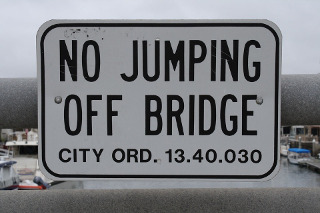Code Enforcement
_____
Encroachment
Junk Vehicles
Debris
Building Code Violations
Water/Sewer Code Violations
Permit/License Violations
Prohibited Uses
Tree Removal
Animal Control
Noise or Noxious Odor Violations

Some background on code enforcement
Generally speaking, the city council adopts ordinances, which are the laws of the city. These ordinances are codified into a municipal code (or “city code”), which is organized into titles, chapters, and sections. Individual portions of the municipal code may be modified by the adoption of new ordinances.
The city has the power to enforce the provisions of its municipal code, and most cities adopt a specific ordinance governing the procedures for local code enforcement. Violations of the city code are often labeled as a public nuisance, and correcting a violation is referred to as “abatement” of that nuisance. Almost always, code enforcement starts with a knock on the door or an informal letter or email advising the property owner of a violation and requesting voluntary correction. If cooperation is not established, enforcement measures typically proceed to a formal notice of violation, optional compliance agreements or hearings to contest or mitigate the violation, and eventually issuance of a civil infraction or execution of a court-ordered abatement.
In my experience, it is almost never necessary for a code enforcement action to make its way into a court of law. Code enforcement disputes are much like personal arguments, fueled on both sides by misunderstanding, defensiveness, and mistrust. Although the letter of the law must be followed, cities are usually far more flexible and understanding than property owners might expect. Conversely, property owners are usually reasonable and obliging when they are clearly informed about what’s being asked of them and why. My approach to code enforcement is that of a mediator, not a litigator. Helping you understand the context and consequences of a code enforcement action is my top priority. Sometimes it will be as simple as breaking down the facts and law so that the requirements are clear and you feel comfortable with what’s occurring. Other times, it may include research and analysis of the legality of the enforcement, determining financial obligations, and coordinating or negotiating with city staff. Visit the Services & Fees page to decide what will best suit your situation: a ULS Consult with document review and legal research, or a New Matter Meeting to discuss the issue together and see if ongoing review or representation is needed.
Code Enforcement Resources
**Note: the links below take you to the general code enforcement chapters in respective city codes. Also, in most city codes, you’ll find that Title 8 governs health and safety, including nuisances and other violations. Be aware, however, that additional violation, penalty, and enforcement provisions are contained throughout the city codes. All legal issues are specific to the facts at hand, and general information available on my website (or any other site) is not comprehensive or necessarily applicable to your situation.
Maple Valley Municipal Code Title 4: Code Compliance
Black Diamond Municipal Code Chapter 8.02: Code Enforcement
Covington Municipal Code Chapter 1.30: Civil Code Enforcement
King County Code Enforcement Webpage
King County Code Title 23: Code Compliance